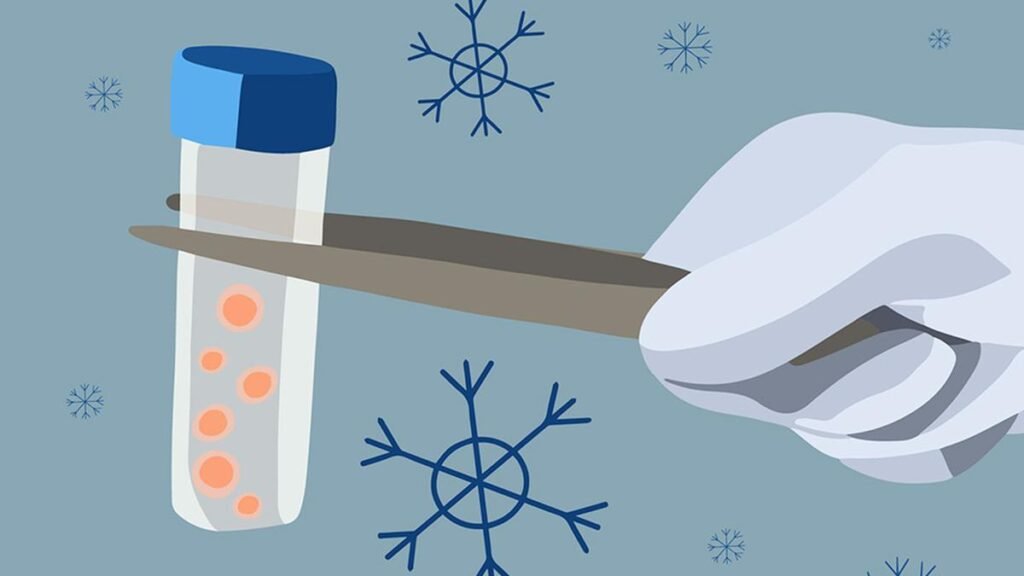Not too long ago, a woman walking into a fertility clinic to freeze her eggs was seen as either exceptionally foresighted or medically driven by a condition like cancer. Today, that same woman is likely your colleague, your friend, or even you. I say this not just as a reproductive medicine specialist, but as someone who has watched this shift unfold in real time.
Let’s start with something simple: choice. More women are freezing their eggs not because they have to, but because they want to. It’s a quiet revolution—and a powerful one.
We all know the biology: female fertility declines with age, particularly after the age of 34. Yet, life doesn’t always fall in line with our ovaries. Careers, education, financial stability, travel, health, caregiving responsibilities—all of these take time. And in a world that still hasn’t made it easy for women to have it all at once, egg freezing offers something rare: a pause button.
Women are saying, “I’m not ready now, but I want to keep the door open.” It’s not about delaying motherhood forever. It’s about having children on your terms, and on your timeline.

The science behind the tech
When we freeze eggs, we use a method called vitrification. This is a rapid-freezing technique that keeps the egg in a suspended, viable state. If done at the right age and with enough eggs, the success rates are promising. In fact, freezing about 20–30 mature eggs before the age of 35 can provide a 65–70% chance of at least one live birth later.
But let’s be honest: egg freezing isn’t a guarantee. It is an insurance policy, and like any insurance, it comes with fine print. Age matters—a lot. Freezing at 40 is not the same as freezing at 30. The quality and number of eggs retrieved decline with age. That is why I always urge women to consult a specialist early, even if they’re not ready to make a decision at that point.
Not just medical anymore
Egg freezing was once a medical necessity for certain conditions — recommended before chemotherapy or surgery. Now, the primary driver is what we call “social” or elective egg freezing. But the term “social” doesn’t capture the gravity of the decision.
A large number of women I meet are not delaying childbearing only because of ambition. They’re doing it because they haven’t found the right partner, or because they want to ensure emotional and financial stability before bringing a child into the world. These reasons are deeply personal and valid. Over the years, I have also been overwhelmed, noticing a shift in the approach parents are taking to securing the future for their precious daughters — parents are showing immense support and encouraging their daughters to freeze their eggs, akin to biological insurance for their child.

What happens at the clinic?
A typical egg freezing cycle takes about 10–14 days of hormonal stimulation. It involves ultrasounds, hormone monitoring, and finally, egg retrieval under anaesthesia. Most women return to work the next day. Risks like ovarian hyperstimulation are rare, especially with modern protocols and careful monitoring.
One of the most frequent questions I get is: “Will I actually use these eggs later?” And the honest answer is: maybe. Studies show that only 10–20% of women who freeze their eggs return to use them. But that doesn’t mean the decision wasn’t worthwhile: egg freezing, for many, can ensure peace of mind and the knowledge that your predetermined biology isn’t in the driver’s seat, you are.
The cost factor
Yes, egg freezing is expensive. One cycle can cost approximately ₹ 1.5 to 2.5 lakhs in India. Some women may need more than one cycle to achieve the target number of eggs. That being said, it may perhaps be a worthwhile investment compared to the potential cost of multiple IVF attempts later. Some workplaces are now covering these costs as an employee benefit— a sign of the changing times.
The emotional journey
We don’t talk enough about this part. Freezing your eggs can be empowering, but also emotionally complex. Some women feel relief. Others feel grief—for needing the procedure or for what it symbolises. That is why counselling is integral to our practice. It is not just about follicles and hormone levels — it is about people, respecting their choices and empowering them to make decisions.

Should all women consider freezing their eggs? That is a complex question and there is no one right answer. What is important to note however, is this: if motherhood is important to you but is not immediately on the horizon, speak to a fertility specialist. Knowledge is power. Get your AMH levels (Anti-Müllerian Hormone, produced by the ovaries, indicating ovarian reserves) checked. Learn about your options. Make an informed decision. Take control of your narrative. The outcome may not always seem to be in your favour, but its better to have lived knowing that at least you tried than never having done so at all.
Egg freezing is not a trend. It is a tool. It won’t guarantee a baby in 100% of cases, as reproductive medicine is too complex a science, in that there are too many factors that need to fall into place simultaneously. However, egg freezing might just give you the breathing space you need to live life your way.
And if that isn’t worth considering, what is?
(Dr. Firuza R Parikh is director of assisted reproduction at Jaslok- FertilTree International Fertility Centre. frparikh@gmail.com)
Published – July 13, 2025 04:19 pm IST

